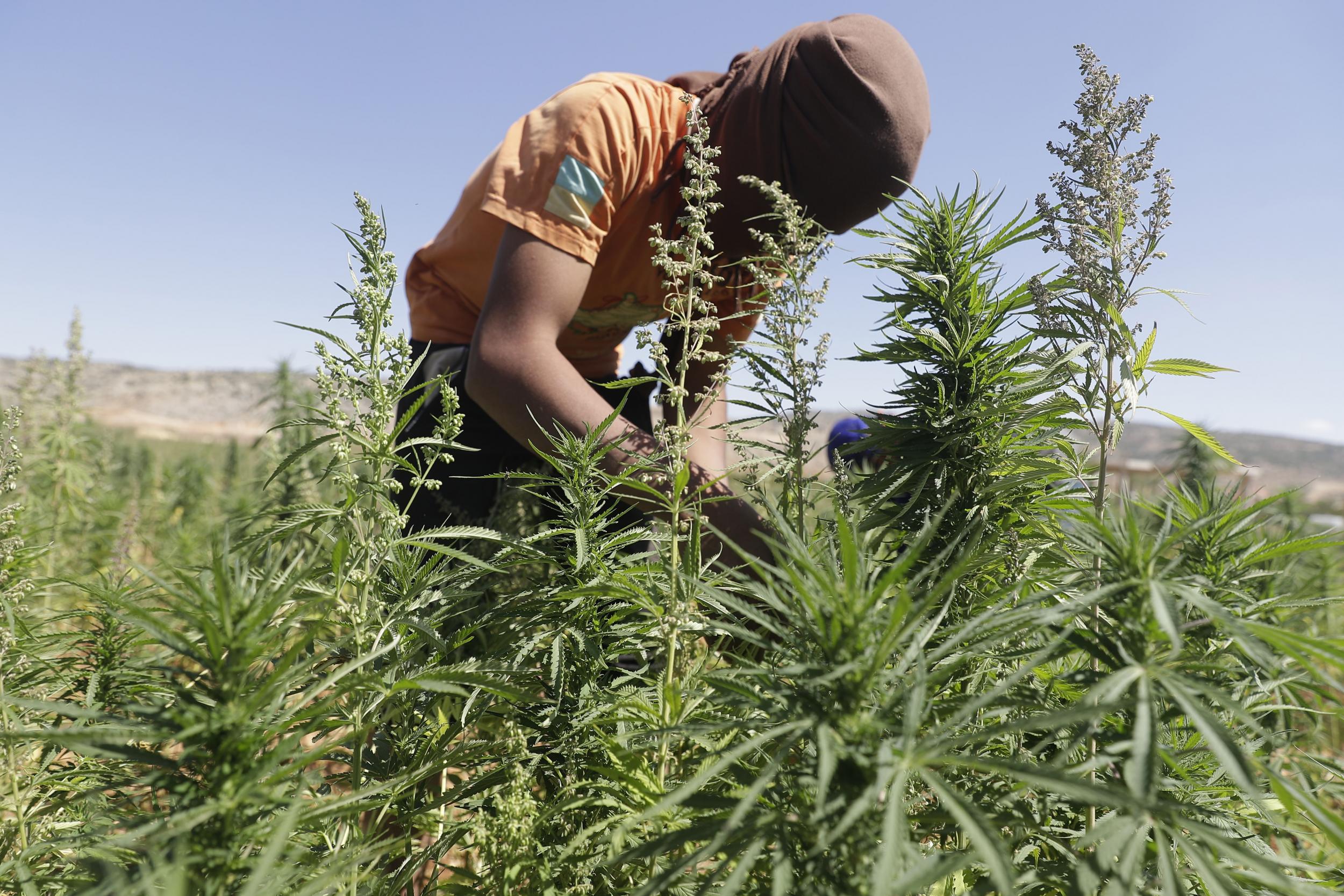Lebanon becomes first Arab country to legalise cannabis farming for medical use in bid to beat economic crisis
Cannabis has long been illegally farmed in the fertile Bekaa Valley and government now hopes to turn it into a legal billion-dollar trade

Lebanon has become the first Arab country to legalise cannabis farming for medical and industrial purposes – a move that could generate lucrative exports and foreign currency as the country struggles to cope with a financial crisis.
Although growing the plant was previously illegal, cannabis has long been farmed openly in the fertile and impoverished Bekaa Valley.
According to the United Nations, the country is the world’s third largest supplier of cannabis resin, or hashish, after Morocco and Afghanistan.
The new law, which was passed on Tuesday, will regulate the already existing cultivation efforts and help stem unlawful production of the plant, with all recreational production and use remaining illegal.
The legislation aims to build a multimillion-dollar industry that could generate products ranging from textiles to pharmaceuticals, and even such items as cannabidiol (CBD) oil, Lebanon’s The Daily Star reported.
Hezbollah, the Iran-backed Shia paramilitary and political group that controls swathes of the Bekaa Valley, was one of the only parties to oppose the legislation.
Lawmakers who supported the bill defended their decision, saying it was “driven by economic motives – nothing else”.
“We have moral and social reservations, but today there is the need to help the economy by any means,” said Alain Aoun, a senior MP in the Free Patriotic Movement.
The idea of legalising cannabis cultivation to produce high value-added medicinal products for export was explored in a report by McKinsey that was commissioned by the Lebanese government in 2018.
The consultancy firm reportedly estimated that the industry could generate as much as $1bn annually.
The Lebanese authorities have long grappled with the illegal trade.
Last month, police carried out the country’s biggest drug bust when they seized about 25 tonnes of hashish that was set to be smuggled to an African state.
Lebanon is meanwhile in the grip of an unprecedented financial crisis that sparked an uprising in October.
The local currency has nearly halved in value since then, while a crippling dollar shortage has impacted imports. Prices have soared, and unemployment has risen sharply.
The arrival of the coronavirus and the subsequent strict lockdown, shuttering businesses, has made matters worse.
As of Wednesday, 682 people were recorded as having been infected by the coronavirus and 22 had died.
Lebanese lawmakers convened on Tuesday in a special session held in a Beirut theatre. Their temperatures were taken, and their legs sprayed with disinfectant so that they could follow social-distancing regulations.
On the agenda were dozens of other bills, including fighting corruption in the country’s massive public sector and a controversial draft bill about an amnesty for thousands of prisoners.
Anti-government demonstrations that observed the coronavirus safety measures were held across the country to coincide with the session, with many driving around the outskirts of Beirut in protest over the country’s economic and political collapse.
Furious protesters told The Independent they felt the government “had no plan”.
Jack, an unemployed physiotherapist, said: “First, they promised 400,000 lire (£215) to each family and then that never materialised, and then 200,000 lire to students and that disappeared too. And we haven’t seen any aid for the poor people.”
“We don’t need amnesty laws; we need aid packages and reforms,” he added.
Subscribe to Independent Premium to bookmark this article
Want to bookmark your favourite articles and stories to read or reference later? Start your Independent Premium subscription today.

Join our commenting forum
Join thought-provoking conversations, follow other Independent readers and see their replies